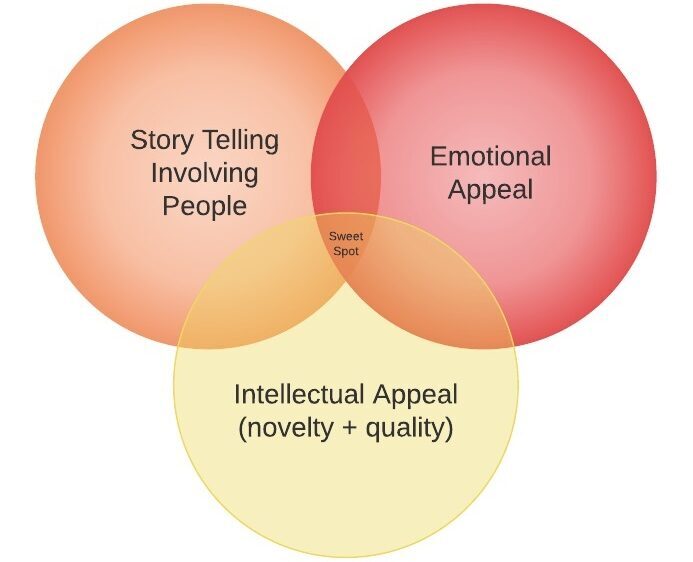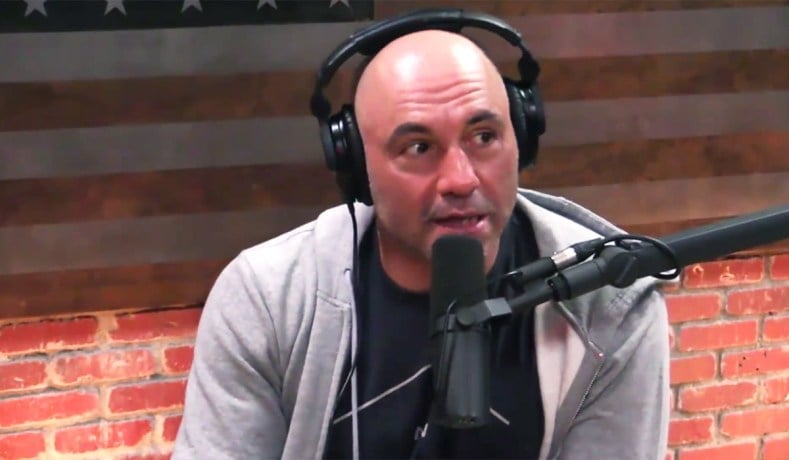Why do some podcasts get millions of downloads while others flop? What top podcasters do differently isn't radical or new. A recent study looked into the behaviour of podcasters to find out why others succeeded whilst others failed. Feel free to wade through the research paper yourself, but stick around for the juicy bits below.
Insights from Amsterdam
A team of researchers from Amsterdam analyzed nineteen podcaster’s work to see if they could identify any patterns between them. If successful, they’d be able to predict how popular a podcast would be without looking at the number of actual downloads. This framework could be used to create better search engines so that high-quality new shows could quickly rise up the rankings.
What Top Podcasters Do Differently
Part of this study involved identifying attributes on what top podcasters do differently. The stats below represent the number of podcasters out of 19 that had that attribute. Does anything jump out at you from these numbers?
- 17 spoke fluently.
- 15 told personal experiences.
- 14 gave clear diction.
- 10 had credentials
- 10 told funny stories.
- 10 spoke very quickly.
- 8 spoke at a normal speed.
- 7 had frequent hesitations or breaks.
- 7 touched on conversational topics.
- 4 told multiple emotional stories.
- 1 spoke very slowly.
- 1 often used vulgar or inappropriate language.
Wouldn’t you expect that every single award-winning podcaster would communicate fluently?
They don’t.
How about using conversational vocabulary so that it’s easy listening?
Eeeer, they don’t all do that either.
What if the truth is that top podcasters don’t always do all the things that most people think they should?
Key Takeaways 🥡
- There is no one correct way to present a podcast. There’s a lot of variance in style among successful podcasters. (This is not the same as saying there are no commonalities among top podcasters in other ways, we’ll get to that later, just that the way they communicate on their podcasts is varied).
- Top-end podcasters almost all communicate very fluently. Their words flow easily and they use language with accuracy.
- Talking about personal experiences WORKS, but isn’t necessary for being successful.
- Using insulting or highly critical language is very rare among award-winning podcasts. Turns out people like keeping their ears clean.
- Talking slowly is rare, probably because - 'HURRY UP I'M BUSY!'
Podcast Your Way to Success🌟
Reduce the time it takes to go from ZERO to HERO with our complete Podcast Blueprint. Industry-leading secrets and shortcuts means you can get started fast, with minimal fuss and no technical headaches. So what are you waiting for?

Thanks for subscribing!
We've just sent you an email, please follow the instructions to confirm your details.
What This Means for You
Your ‘weaknesses’ won’t necessarily hold you back. The style in which you communicate needs to be appropriate for the type of content you’re producing and who it’s targeted at, but it is not necessary for you to be outstandingly articulate or funny - heck, you don’t even need to talk clearly!
Classic writers on effectiveness, like Peter Drucker, have been saying for decades ‘play to your strengths’, don’t focus on improving a weakness unless it impedes a strength. The award-winning podcasters in this study are not perfect communicators and, surprisingly, they don't need to be.
Do Top Podcasters Have a Spark Most of Us Lack?
I think there’s one ability in particular that really sets the big fish apart from the small fry.
What top podcasters do differently is have the ability to curate content and steer conversations into the ‘sweet spot’. The sweet spot is the place in the middle of the Venn diagram below. Another way of thinking about the sweet spot is that you need to be able to answer YES to these three questions as often as possible throughout every episode:
- Am I presenting this content as a story told from a human perspective?
- Does this topic emotionally stimulate my audience?
- Is this topic intellectually appealing in some way?
Top podcasters have an extraordinary ability to identify content that hits the ‘sweet spot’ in this Venn diagram. It seems simple but is a deceptively difficult skill to master.

Taking a Closer Look at This Model 🔍
Everything is about how you make your audience feel. Intellectual appeal and human storytelling are essentially appealing to the feelings of curiosity and anticipation/expectation. Both come under 'emotional appeal', but are worthy of closer inspection on their own.
Story Telling Done Right
What's the alternative to telling a human story? You can present the information in its dry form, skip straight to the conclusion or the content centred around the human experience and using narrative to create an expectation of an interesting ending worth waiting around for.
Do you find it strange how sometimes you’re so desperate to hear the ending of a story that you wait till the end even when the story is trashy? When you think about what storytelling is to humanity, you realize it's more than just a nice device to spice up information. We shouldn't be surprised then that those that master storytelling are wielding something extremely powerful - it's a tool capable of capturing minds!

Listening to stories and listening all the way to the end probably helped our ancestors survive on the plains of Africa because it meant we learned more about threats and opportunities.
Managing to tell a story while still ticking the other two boxes is hard.
Storytelling is essential but it’s also common. It’s not enough to just be telling a story. It has to be emotionally appealing and novel in some way too to make a big splash and this isn’t easy.
Take the education niche for instance - it’s one of the largest podcast categories so a lot of podcasts discuss ideas over people. This makes it harder to tell stories grounded in the human experience because the topics can be quite abstract. How do you present for instance, the theory that the world is actually a simulation as part of a story grounded in the human experience? Well, you could tell the story of how Elon Musk came to believe this theory, using clips of him speaking about it. Now you have a story about a person and you’re conveying the same information.
The Times demonstrates informative storytelling really well in their podcast on a new climate change report. They manage to present the whole topic, including an economic theory, as a collection of chronological stories about people.
What top podcasters do differently is take advantage of the intimacy of audio as a medium and tell real human stories, while still keeping the content on the topic. They package topical, even factual information within stories about people.
Pulling on Your Listener's Heart Strings 💗 (Emotional Appeal)
Do you know why the news centers around negative stories? It’s partially because news outlets prioritize content in order of emotional significance to their audience rather just global or national significance.
They know what they’re doing.
Topics bound up in emotion get listeners like you frothing at the mouth for more. Just take the phenomenally brilliant Serial Podcast that focuses on questionable convictions/murder cases. It’s easier to tap into negative emotion than a positive one, but the exact emotion you tap into doesn't matter as long as it's not boredom.

Part of the appeal of podcasts is that they are very intimate and human. Text can’t convey emotion like the spoken word, it’s too easy for writers to polish revealing details out of their text. Strangely, video can also create a distance between presenters and their audience because people act weird in front of cameras. Audio, however, is raw and authentic. I think this makes listeners more receptive themselves on an emotional level.
Top podcasters take advantage of this.
Going back to Serial, the most downloaded podcast ever, at 250 million downloads. It’s centered around themes of murder, justice, and uncertainty. These topics trigger strong emotional responses in listeners.
Emotional appeal can be very subtle.
It's about making content relevant and centred around topics that matter to people. You don’t have to tap into emotions quite so directly, however. Tim Ferris talks about the 80/20 Principle in his podcast, which is a principle from statistics. Although statistics don’t seem to speak to the emotions, in this case, you’ll see that it’s giving hope to people that are feeling overwhelmed by their workload.
Even the most abstract podcasts dealing with topics like philosophy are still speaking to people’s emotions. The audience is not really there for the information and abstract ideas, they are there because perhaps they have existential angst or they like feeling smart or maybe they’re unusually curious and are addicted to the kick of learning new things.
Ask yourself: what emotional motivator am I speaking to with this content?
Is it morbid curiosity? Is it a desire to relax? Is it fear? A lot of podcasts have zero intellectual substance and don’t use storytelling, but they make people feel great, so they still succeed. If you could only tick one box, it would be this one.
‘People will forget what you said, they will forget what you did but they will never forget how you made them feel’ - Maya Angelou
Novelty Commands Attention 🤔 (Intellectual Appeal)
What top podcasters do differently is know what novel content is when they see it. They also have the advantage of gaining access to interesting guests, which makes generating novel content much easier. When you listen to a high-quality podcast, you’re generally listening to something you can’t hear anywhere else. People come back to listen to the show again because a lot of the time there’s nowhere else they could go to get what you offer.
That’s why a lot of mainstream podcasts are actually focused on minority or fringe ideas and topics (Joe Rogan does this quite well).

A lot of listeners are hoping to hear that one new delicious piece of information that will solve their problem or inspire them somehow. Every now and then they get a piece and that creates a positive feedback loop that keeps them coming back. Even among those listeners that don’t have this feeling, providing novel perspectives on topics or interesting insider information makes for addictive content.

Again, going back to the Joe Rogan Experience as it's particularly good at dishing out novelty topics and bringing them to the mainstream with polar opposite guests. If he’s creating a podcast on relationships, for instance, he has somebody that has several wives and promotes polygamy on the show. Then contrasts that with a biological anthropologist that believes in monogamy. This content stands out compared to a standard relationships podcast.
What top podcasters do differently is look into the nooks and crannies of reality and come out with novel content and interesting guests we love. But it’s not all about novelty. The Times, for instance, doesn’t create content on topics you couldn't explore easily elsewhere, but the quality of information and sources is so high that it still holds massive appeal. Mediocre podcasts all have the same guests telling the same stories about topics people already know a ton about.
A good question to ask yourself: Is this content novel or of sufficient quality that listeners can’t easily find elsewhere?
Steering Conversations 🚗
So, now we know what the three key attributes are that make for explosively popular content. The real hard part isn’t knowing what makes for good content but actually being able to bring it all together and consistently stay in that sweet spot throughout each episode, every episode. This means being good at planning, editing and crucially, steering conversations. Steering isn't as easy as it sounds.

Here’s an example of successful steering...
Guest:
‘Penguins are delicious, but they’re also endangered, so I feel really bad whenever I cook them. They are endangered because of overfishing, global warming, etc (begins to talk about why they are endangered as a series of emotionless facts).’
Host (steering the conversation):
'Could you tell us about the first time you ate a penguin: how did you go about catching it? What was going through your head?'
Note: Podcast.co does not condone the action of eating penguins.
In this instance, the guest has said something that is ripe with opportunity for conversation that stays on the sweet spot. However, there’s a challenge - the guest has started talking about why penguins are endangered. That information may be high quality, it may also be somewhat novel if the guest has an interesting perspective on the issue, but it’s not a human story and it’s not particularly emotionally engaging if it’s presented as a series of facts. That means it’s only ticking one of the three boxes. Wouldn’t it sound better if he went on to list these facts while describing what went through his head before he pulled the trigger? The listeners still get the same information but it’s so much more engaging.
It’s no easy task to bring the conversation back to the sweet spot. It helps a lot if you’ve taken the time to really understand your guest so you can identify potential sweet spots before your show begins.
4 Powerful Questions to Ask Yourself
- How can I present this specific content through the lens of the human experience or, better yet, in a story?
- What emotions does this specific content tap into among my audience?
- Is this content novel or can they easily find something similar elsewhere?
- How can I steer the conversation or edit my work so that my podcast has all three attributes of great content at once throughout this episode?
Podcast Your Way to Success🌟
Reduce the time it takes to go from ZERO to HERO with our complete Podcast Blueprint. Industry-leading secrets and shortcuts means you can get started fast, with minimal fuss and no technical headaches. So what are you waiting for?









